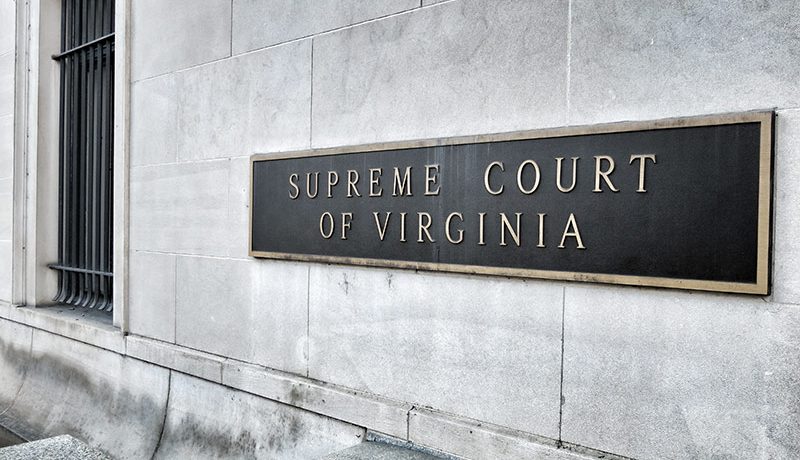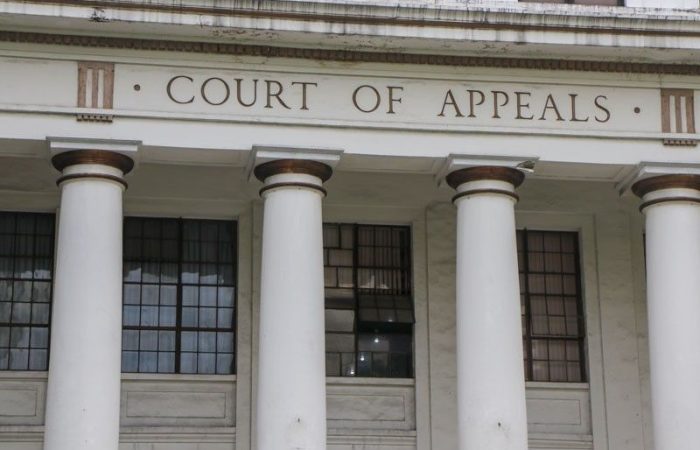By Katarina Nguyen
I. What is defamation?
The elements of defamation in Virginia are “(1) publication of (2) an actionable statement with (3) the requisite intent.” Jordan v. Kollman, 612 S.E.2d 203, 206, 269 Va. 569 (Va. 2005). In litigation, the plaintiff has the burden of proving that a defamatory statement is false. Id. at 206-07 (citing Williams v. Garraghty, 249 Va. 224, 235, 455 S.E.2d 209, 216 (Va. 1995)). The standard for the burden of proof is by the preponderance of the evidence. Gazette, Inc. v. Harris, 229 Va. 1, 15, 325 S.E.2d 713, 724-24 (Va. 1985). “Preponderance of the evidence” is the standard burden of proof for most civil cases, which is a lower standard than “beyond a reasonable doubt” in criminal cases and “clear and convincing evidence” in certain types of civil cases.
The first element simple enough to understand: the defamatory statement has to be shared with other people. The third element gets more complicated with different types of intents for different types of defamation, but the general concept is still clear: the person making the defamatory statement had to intend it to be so. However, the second element tends to be the trickiest.
II. What is an actionable statement?
The Virginia Supreme Court has held that an “actionable statement” is one that is both false and defamatory. Id. (citing M. Rosenberg & Sons v. Craft, 182 Va. 512, 518, 29 S.E.2d 375, 378 (Va. 1944)). Being a false statement is not enough to be actionable–the statement must also be defamatory. Conversely, being a defamatory statement with the required “sting” is not enough to be actionable–the statement must also be false.
III. What is the defamatory “sting”?
The Court refers to this as the defamatory “sting” needed for the statement to be actionable. Schaecher v. Bouffault, 290 Va. 83, 92, 772 S.E.2d 589, 594 (Va. 2015). Actionable statements with the required defamatory “sting” are those that harm the person’s reputation so much so that third parties or the community as a whole holds a poorer estimation of him or her, or that third parties feel deterred from associating with him or her as a result of the statement. Id. at 91-92, 772 S.E.2d at 595 (quoting Chapin v. Knight-Ridder, Inc., 993 F.2d 1097, 1092 (4th Cir. 1993)). Statements with the required defamatory “sting” also tend to shame or disgrace the person, cause others to scorn, contempt, or ridicule him or her, and gives him or her a ridiculous, odious, or infamous reputation. Id. at 92, 772 S.E.2d at 594.
IV. What qualifies as a defamatory “sting” and an actionable statement?
While the definition of an “actionable statement” is broad, the Virginia Supreme Court has established certain categories of actionable statements as having a strong defamatory “sting”, so much so that the plaintiff would not have to show how exactly he or she was injured by the statement. Great Coastal Exp., Inc. v. Ellington, 334 S.E.2d 846, 849, 230 Va. 142, 146-47 (Va. 1985). These are actionable statements that constitute defamation “per se”. Actionable statements that do not constitute defamation per se are categorized as defamation “per quod”.
The four types of actionable statements that are defamatory per se are as follows:
1. Stating that the person committed a criminal offense involving moral turpitude which, if charged, could result in indictment and punishment.
2. Stating that the person is infected with a contagious disease which, if true, would exclude that person from society.
3. Stating that the person is unfit to perform their official duties or job duties, or that the person lacks integrity to perform such duties.
4. Making a statement that would prejudice the person in his or her profession or trade.
Id.
The Virginia Supreme Court has ruled that a crime of “moral turpitude” is where the offense is so base, vile, or depraved either in private or in social settings and is contrary to customary rules governing what is right and the duties that people who to each other. Id. at 850 (quoting Tasker v. Commonwealth, 202 Va. 1019, 1024, 121 S.E.2d 459, 463 (Va. 1961)).
The statements have to strictly meet the foregoing requirements to qualify as actionable on a per se basis. For instance, falsely stating that the person drove a vehicle with expired registration tags perhaps may qualify as defamatory, but because no reasonable person would consider failing to renew their vehicle registration to be a base, vile, or depraved act, this statement would not qualify as actionable per se. Similarly, falsely stating that the person contracted influenza may be defamatory, but because it would not exclude that person from society, it would not be actionable per se.
V. What doesn’t qualify as a defamatory “sting” or an actionable statement?
Because there is a broad spectrum of what meets the definition of an actionable statement, it can often be easier to define an actionable statement by what does not qualify as actionable or otherwise lacks the required defamatory “sting”.
A. Absolute Privilege
The Virginia Supreme Court has held that statements made as part of a judicial proceeding, so long as those statements are both material and relevant to the matter, are protected by absolute privilege. Mansfield v. Bernabei, 727 S.E.2d 69, 73 (Va. 2012) (citing Donohoe Constr. Co. v. Mt. Vernon Assocs., 235 Va. 531, 537, 369 S.E.2d 857, 860 (Va. 1988) (internal quotations omitted). Absolute privilege is not limited to just those statements made within a courtroom. Id. However, this privilege does not extend to “mere potential litigation”, so statements made prior to litigation may be actionable. Id. (citing Lindeman v. Lesnick, 268 Va. 532, 537-38, 604 S.E.2d 55, 58 (Va. 2004)). But statements made as part of attempted settlement negotiations related to seriously considered proposed judicial proceedings are protected by absolute privilege if those statements are only made to people with an interest in the proposed judicial proceeding and the statements themselves are material and relevant to the matter. Id. at 75.
An example of a privileged pre-litigation statement is if the person prepares a settlement proposal or draft of a judicial filing and circulates it among parties who would be involved in the potential lawsuit. Statements made during the litigation, including in the courtroom, judicial filings, or at depositions, are also protected by absolute privilege.
B. Qualified Privilege
The Virginia Supreme Court has recognized a defense of qualified privilege to what would otherwise be actionable statements. This type of privilege covers statements where the person making the statement has an interest or duty in the subject matter of the statement. 286 Va. at 338, 749 S.E.2d at 533 (citing Larimore v. Blaylock, 249 Va. 568, 572, 528 S.E.2d 119, 121 (Va. 2000)).
A classic example of qualified privilege is demonstrated by the case of Cashion v. Smith. In that case, two surgeons were providing emergency treatment to a patient, who died during the surgery. After the treatment, one of the doctors made several statements about the other doctor in front of the other members of the treatment team, including stating that the other doctor “purposefully didn’t resuscitate” the patient, implying that the other doctor euthanized the patient. The Virginia Supreme Court affirmed the trial court’s ruling that the statements were not actionable because the doctors both had an interest or duty in the subject matter of the statement, namely the quality of the patient’s treatment.
However, simply because the person making the statement has an interest in the subject matter of the statement does not mean that he or she can say anything without consequence. Qualified privilege can be revoked if the plaintiff is able to show that (1) the person making the statement knew it was false or recklessly did not care if it was true or false, (2) the person making the statement communicated it to a third party with no interest or duty in the subject matter, (3) the person making the statement did so out of ill will or personal spite, (4) the person making the statement used disproportionately violent or strong language when compared against what was being alleged, or (5) the person making the statement did so in bad faith. Id. If any one of those arguments applies, then qualified privilege can be revoked.
Using the above Cashion v. Smith scenario as an example, if the doctor accusing the other doctor of purposefully failing to resuscitate the patient actually knew that the other doctor did, in fact, try to resuscitate the patient, but then made that statement anyway, then the qualified privilege is revoked and the statement becomes actionable.
C. Rhetorical Hyperbole
The Virginia Supreme Court has held that statements qualify as rhetorical hyperbole and, therefore, are not actionable, if a third party could not reasonably infer from the statement that the person actually engaged in the described conduct. Cashion v. Smith, 286 Va. 327, 339-40, 749 S.E.2d 526, 533 (Va. 2013 (quoting Yeagle v. Collegiate Times, 255 Va. 293, 296, 497 S.E.2d 136, 127 (Va. 1998)). Rhetorical hyperbole can also encompass statements that are offensive, inappropriate, or insulting. 290 Va. at 92, 772 S.E.2d at 594. These types of statements lack a defamatory “sting” due to the fact that most reasonable people would not believe the statements as being the truth.
Exaggerations and extreme-language tends to qualify as rhetorical hyperbole. For example, a statement such as, “This person is a pig because they ate all of the restaurant’s food in one meal,” would be considered rhetorical hyperbole because no reasonable person would believe that the subject person was a literal pig or that a single person could eat an entire restaurant’s stock of food in a single sitting.
However, rhetorical hyperbole can still cross a line, carry the required defamatory “sting”, and therefore be deemed actionable statements under certain circumstances. If the statement accuses the person of lying, then an average third party reading or hearing that statement would not know if that statement was hyperbole or not. Schaecher v. Bouffault, 772 S.E.2d 589, 599 (Va. 2015). Because of that, statements that accuse the person of lacking honesty or being a liar have been ruled as being potentially actionable statements depending on the circumstances. Id. at 600.
D. Opinion
The Virginia Supreme Court has exempted statements of opinion from being deemed actionable statements because, like rhetorical hyperbole, they lack the required defamatory “sting”. In discussing what constituted an opinion, the Court defined it as being largely dependent on the speaker’s point-of-view and being relative in nature. 286 Va. at 336, 749 S.E.2d at 533. But if the opinion is couched in language with factual connotations that can be proven false, then those statements can be actionable. Fuste v. Riverside Healthcare Ass’n, 265 Va. 127 575 S.E.2d 858, 861-62 (Va. 2003) (quoting WJLA-TV v. Levin, 264 Va. 140, 156, 564 S.E.2d 383, 392 (Va. 2002)). And insinuations within an opinion can cause the statement to become actionable. Hyland v. Raytheon Tech. Servs. Co., 277 Va. 40, 47, 670 S.E.2d 746, 751 (Va. 2009).
Using the previously explained scenario from Cashion v. Smith, the doctor’s statement that the other doctor “purposefully didn’t resuscitate” the patient is not an opinion because there are factual connotations and insinuations in that statement that can be proven false, which is either than the other doctor failed to perform the resuscitation treatment or actively stopped the resuscitation treatment from happening. But that doctor’s remaining statements about how the other doctor “didn’t really try”, gave “a very poor effort”, and “gave up on” the patient were all deemed to be opinions because they entirely depended on that doctor’s point-of-view and were subjective in nature.
E. Truth
The truth is always a strong argument against an alleged actionable statement. However, the defendant no longer has to raise the truth as an affirmative defense in defamation cases. 229 Va. At 15, 325 S.E.2d at 725. Rather, the plaintiff has the burden of proving that the actionable statement is both defamatory and false. Id.
VI. What should I do if I think someone defamed me?
Defamation cases are all very fact-specific, meaning that no two cases are exactly alike. You will need to have the precise words that the person spoke or wrote in order to proceed with a defamation case in court. And you will also need background information and perhaps other statements that were made to establish the circumstances, conditions, and context of your case, which all directly impact the strength of your defamation case. And bear in mind that the statute of limitations for defamation is one year from when the cause of action accrues, which is generally from the date of the statement’s publication. Va. Code Section 8.01-247.1. That means that if you suspect you have been defamed, you need to maintain a record of the statement, if possible, and determine whether to take legal action sooner rather than later.
If you need assistance in determining whether you have a potential defamation claim, please contact us for a consultation.




